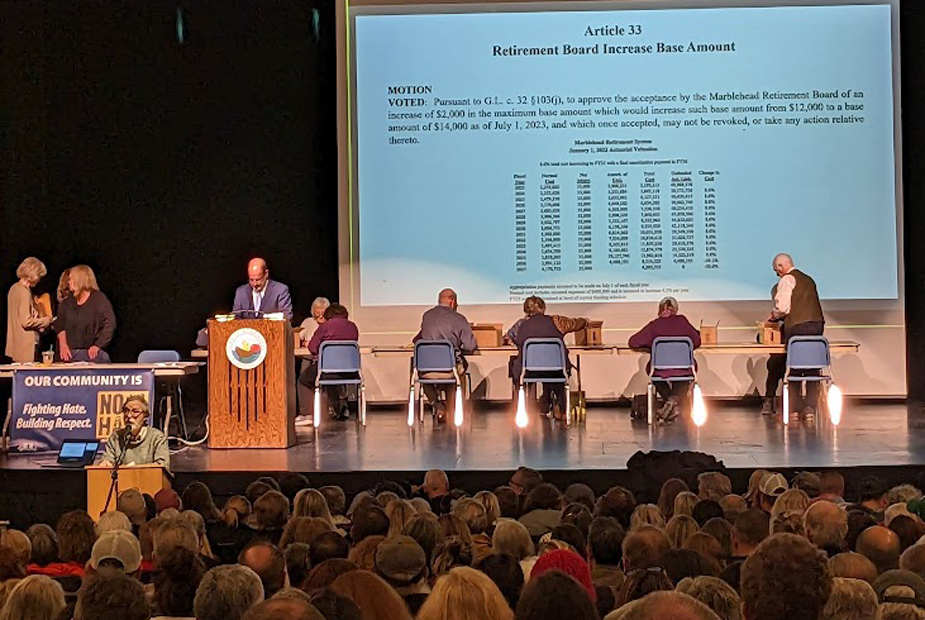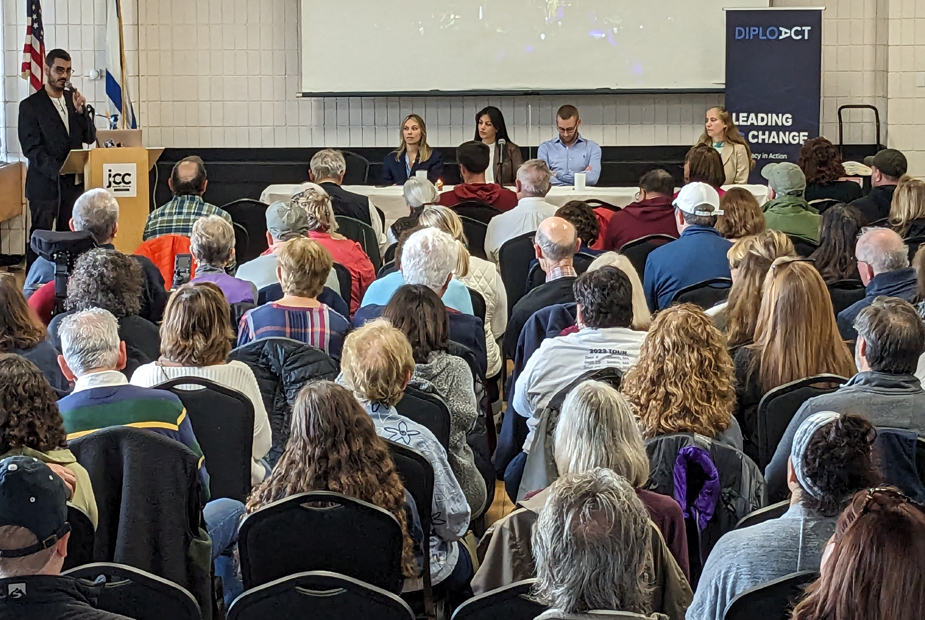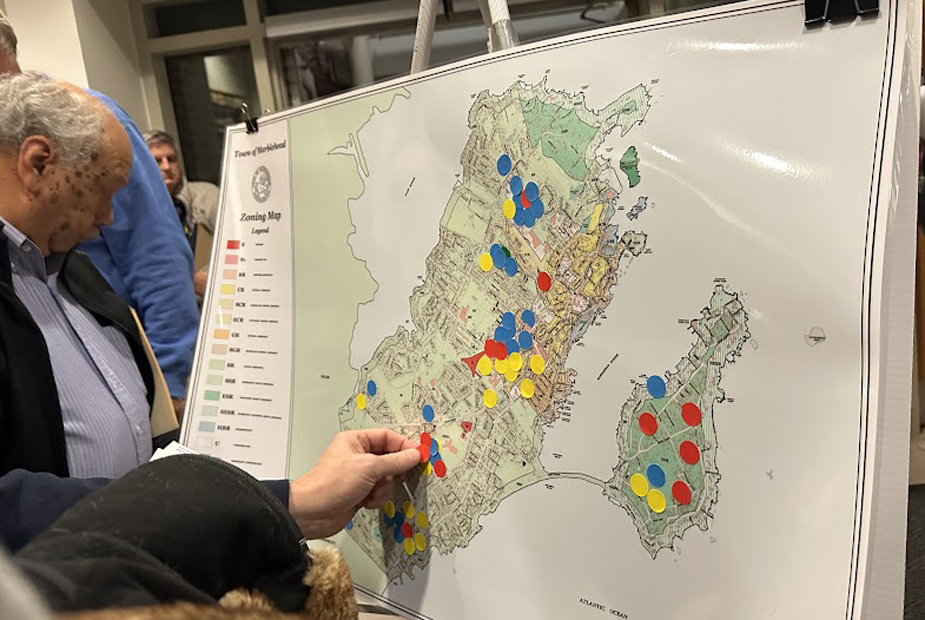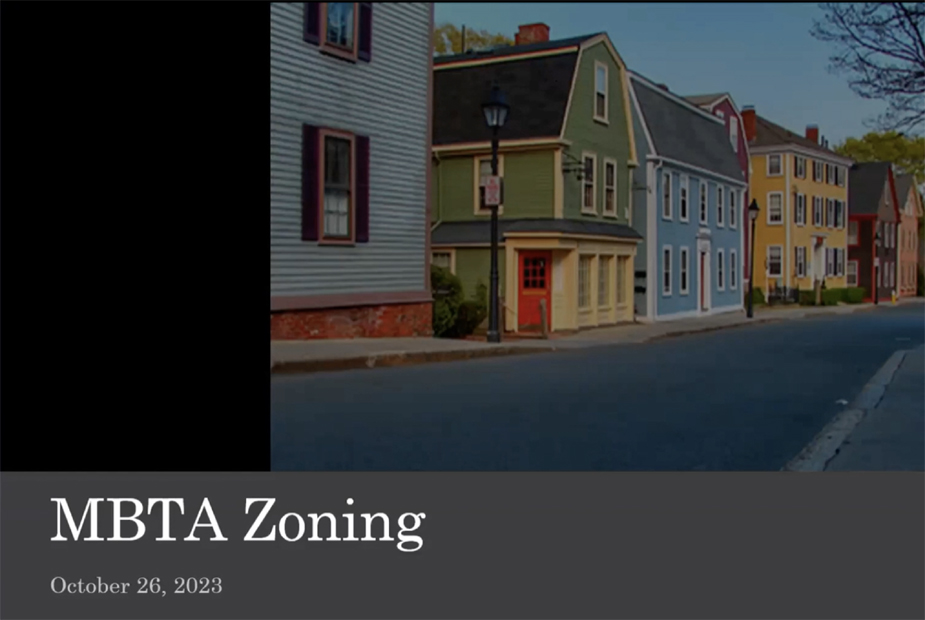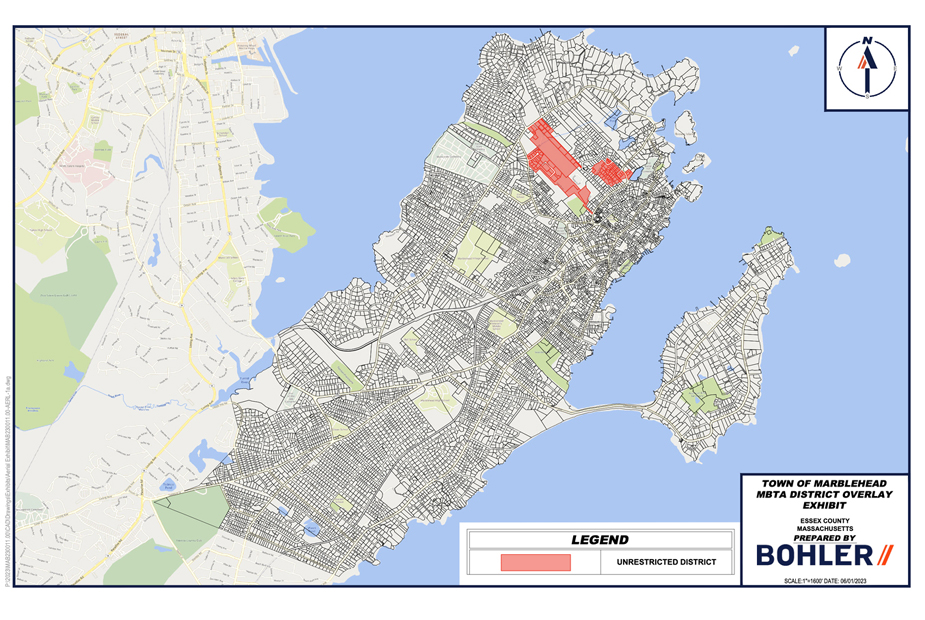Override Sent to Ballot, Speakers Heckled, Town Meeting Extended to Third Night
“Talk about a first Town Meeting!”
So exclaimed newly elected Moderator Jack Attridge toward the end of the second night of Marblehead’s annual Town Meeting. And after an evening filled with multiple calls for the question (a priority motion that – if approved – stops all debate), booing from the audience, two secret written ballots, and the defeat of the moderator’s motion to adjourn (twice) – no one could reasonably dispute the sentiment.
The first night of Town Meeting had addressed Articles 1 through 30 on the Town Warrant, so Tuesday evening started off with Article 31 – a proposal to send an override of Proposition 2 ½ to the ballot on June 20, 2023. This general override involves a permanent increase to Marblehead’s tax rate in the amount of $2.5 million, in contrast to a debt-exclusion override (typically used to fund capital projects and always terminated after a predetermined time period). Proposition 2 ½ limits tax increases to 2.5 percent of property values plus new growth in a community, and an override vote is necessary to increase the tax rate beyond this amount.
Town Administrator Thatcher Kezer started off the conversation, explaining that the town is facing a structural deficit and that the override vote is necessary to restore level services. The previous evening, Town Meeting had passed what was called a “reduced services budget,” which involves cuts in a number of departments, including the schools, fire, and police.
Conversation was spirited, with some of those who went to the microphones expressing skepticism about the proposed tax increase. Jimmy Full noted that it was disingenuous for the text of the article presented in the Town Warrant not to specify that this was a general – and thereby permanent – override. Cheryl Patten raised issues related to what she called the “elephant in the room” – the town money invested at National Grand Bank at subpar interest rates while taxpayers are asked for more money. Attridge quickly shut down this line of discussion, noting, “That’s not part of this article tonight.” Patten then raised the issue of the $6 million the town has received through the federal government’s American Rescue Plan Act (ARPA), but she was again interrupted by the moderator. Jonathan Lederman stood up to ask Kezer if he anticipated another general override next year, and Kezer gave a lengthy response, ultimately stating, “I don’t know yet…I can’t answer at this stage.” Finally, Mark Pelletier, in a surprise move, approached the microphone, noted that this was an educated crowd who had likely already made their decisions, and called for the vote.
Calls for the vote – stopping discussion and forcing an immediate vote on the article at hand – played a role in the first night of Town Meeting, and this trend continued throughout night two, a departure from previous year’s Town Meetings. The call was particularly controversial with regard to Article 31, both because a large number of attendees were standing at the microphone waiting to speak and because Attridge approved the measure with a visual survey of the crowd rather than a formal hand count. Some confusion ensued, with a participant calling out that the required two-thirds had not been verified, and some back-and-forth discussion as to whether it was a majority or two-thirds vote required to uphold the motion. At the same time, a group of participants submitted a written request for the voting on Article 31 to be done by paper ballots. This request must be submitted in writing by at least nine participants who are present in the room at the time the request is made.
To be approved, Article 31 required a two-thirds majority vote – or 66.6 percent – at Town Meeting. When all of the ballots were counted, the measure passed, with 534 voting in favor and 230 opposed, a 69.9 percent approval rate. The second step of this process is a majority vote by the Select Board, at which point the general override will appear on the town ballot June 20, where it requires a simple majority vote.
Another Town Meeting article that involved significant discussion related to the approval of Accessory Dwelling Units (ADUs) – smaller independent residential units that are located within or on the same lot as a single-family home. The change in the bylaw to allow these units in Marblehead passed by a substantial margin – 500 to 130. Jay Michaud won the prize for one of the most entertaining speeches of the evening, in which he noted, “I find it very weird to be the same age as old people,” and “I don’t have to die to know what heaven is, because I live in Marblehead.” He expressed his support for the ADU proposal, saying, “I don’t want to downsize. I want to die at 25 Ocean Avenue, but not right away.”
Other residents stood up to question the potential for ADUs to reduce surrounding property values as density increases and to risk damaging the character of the town. Enforcement mechanisms for preventing short-term rentals in these properties were also addressed, highlighting the recent turnover in the building department. Once again, a group of residents requested private paper balloting on this measure.
Two additional articles that had been the subject of significant speculation prior to Town Meeting addressed the change of the Select Board terms from one to three years, and the potential reversal or enhanced enforcement of the gas-powered leaf blower ban passed at last year’s Town Meeting. The change to the Select Board terms passed with 302 in favor to 277 opposed.
Just before beginning consideration of the leaf blower ban, Attridge noted that the time was getting late and, “As promised, I’m not going to start another article after 10 o’clock.” This announcement was met with pronounced disapproval from the audience, and the moderator’s motion to adjourn was soundly defeated in a show of hands, punctuated with cries of “no, no, no.” Attridge responded with good humor, saying, “Well, this is democracy. It’s your call.”
The first leaf blower-related article, sponsored by local landscaper Todd Norman, sought to overturn the existing gas-powered leaf blower ban for the summer months. Audience members grew impatient as he detailed the myriad ways battery-operated leaf blowers represent serious environmental damage and create hardships for landscapers, and stated that the gas-powered leaf blower ban constituted government overreach. Following Norman’s presentation Attridge spoke forcefully to the audience, stating, “Folks, I’m going to tell you right now, I’m not going to put up with catcalls. Presenters were given 10 minutes, and Mr. Norman stayed within that…we can do better.” The article was eventually defeated by a show of hands in the auditorium coupled with a very close hand count – 13 in favor and 14 opposed – in the overflow room.
Following another motion to adjourn by the moderator, once again defeated by Town Meeting, Article 48 – the leaf blower ban enforcement mechanism – was presented by sponsor Jeanie Stahl and discussed briefly before another participant stood to call the question and force a vote. Looking out over the relatively evenly divided audience, Attridge noted, “Oh gosh, we’re counting guys,” and once again called the tellers up to do a hand count. The measure passed 246 to 165.
Attridge then made a third motion to adjourn, which this time was approved, leaving six articles remaining on the agenda. These will be considered tonight, Wednesday, May 3, at 7:00 p.m. once again at the Marblehead Veterans Middle School. The articles still to be considered revolve around traffic issues and the management of certain town boards, including requirements to publish Standard Operating Procedure manuals and to record meetings and post meeting minutes. In order to conduct business this evening, a quorum must be in attendance. The minimum number of voters for Marblehead, as established by town bylaw, is 300.
Editor’s note: The author is married to Jonathan Lederman, who participated in Town Meeting and is referenced in the article.

